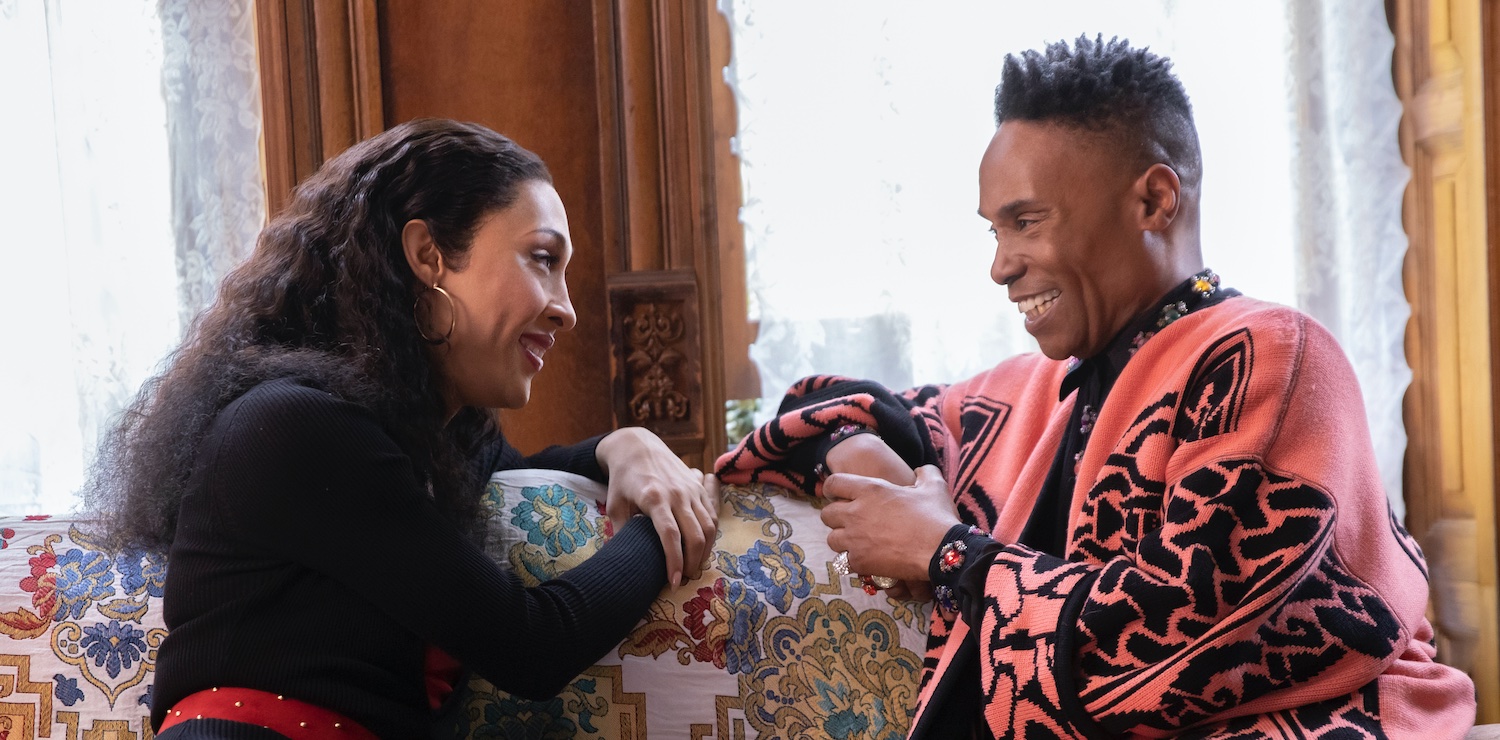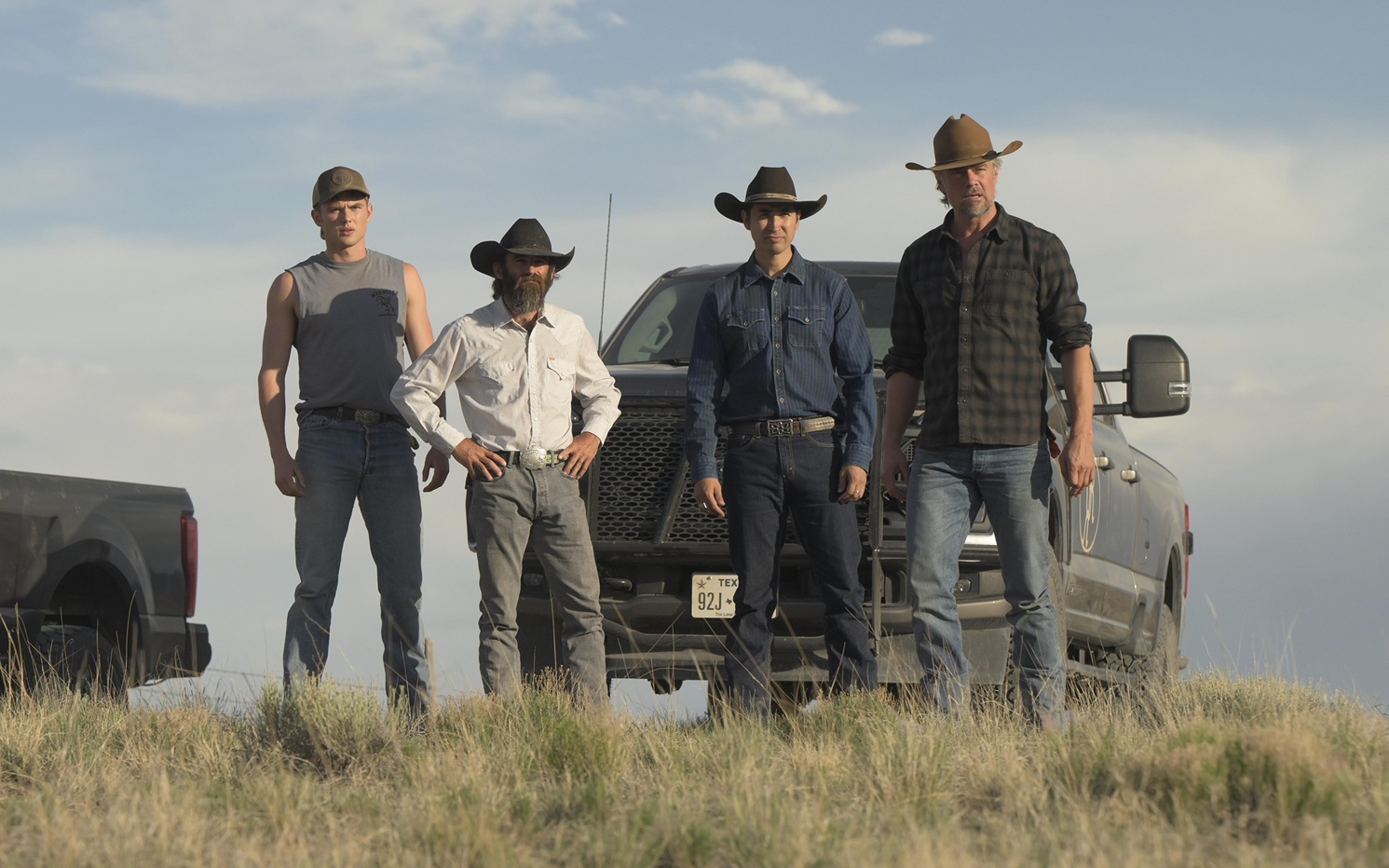What to Watch Verdict
Director and co-creator Steven Canals ties up most of the show's loose ends in a finale as operatic and gratifying as the show deserves.
Pros
- +
👠 The show's depiction of real-life protests leading to more treatment opportunities for people of color provides a sobering backdrop for its wish-fulfillment wrapup.
- +
👠 Canals and his cowriters fire a clever broadside at 'Sex and the City' as his colorful cast offers a more honest look at cosmopolitan New York.
Cons
- -
👠 Some of the story lines, especially for Angel and Elektra, relegate them to less interesting conclusions than they deserve.
This post contains spoilers for Pose.
Check out our last review here.
A week after the wedding of the century, everything feels a bit like a comedown on Pose, even if we’re already at the series finale. It’s impossible to overstate the historic significance of the show and its depiction of LGBTQ+ people of color, much less its studious belief that they deserve as many happy endings as everyone else in television history, even if it means packing several into each episode. But as the saga of house Evangelista comes to a close, finale director and co-creator Steven Canals packs viewers’ final two hours with these beloved, beautifully multidimensional characters full of bittersweet wisdom and sometimes bracing inspiration.
The episode opens as Pray (Billy Porter) enlists Blanca (MJ Rodriguez) to help complete his panel for the AIDS quilt he elected to be a part of earlier in the season; but at the moment he prepares for death, Blanca and Judy (Sandra Bernhard) discover a clinical trial for HIV and AIDS patients whose efficacy might just save his life — if they can get him into it, anyway. Unfortunately, few people of color were considered for the study, which appropriately outrages the two of them enough to mount protests in front of the hospital until its administrator relents and admits just two new patients: Pray and Blanca. But even as Christopher (Jeremy Pope) thrills at the chance to experience a full and happy life with Blanca, she raises the spectre of the Tuskegee experiments, although her concerns feel more born of a fear of hoping too greatly for a cure to the destructive disease than sincere skepticism of the trials’ intentions (much less efficacy).
Nevertheless, both she and Pray begin taking the medication, prompting a transformation that neither could have imagined. “I just want to know that I can make plans — that the future is still something that we’re allowed to have,” says Blanca. Strutting through New York in a vibrant return to form, Pray reconnects with Ricky (Dyllon Burnside) and encourages him to join the gay men’s choir where he’s found both solace and a creative opportunity to celebrate their community — both its achievements and losses. But when Ricky discloses the appearance of a lesion, Pray and Blanca are dispirited to learn that no more people of color can join the trials. “It can’t just be us who are the lucky ones,” Pray says.
Canals captures the escalating protests with a combination of cinematic sweep and street-level videography, switching frequently to perspectives from ‘90s-era consumer grade cameras for a gritty, if overstated, sense of realism. At a ball, Pray and Blanca offer a showstopper of a duet to Diana Ross that both commemorates their friendship and honors the late Candy (Angelica Ross), who fought to institute a lip sync category. The evening marks Christopher’s first appearance at a ball, proudly watching Blanca from the balcony; but it proves to be as much of an ending as a beginning, with Pray reflecting on the community and experiences that he shared in that room as a performer, emcee and mentor. “My impact has been felt here,” he says.
During the second half of the episode, life progresses in hopeful, positive ways for the cast, even as the medication that Blanca and Pray received offers a second chance at life for some of those who may not yet be suffering the effects of HIV or AIDS but live in fear or it. Emboldened both by loss and a feeling of having nothing left to lose, their community intensifies its efforts to pressure the pharmaceutical companies to recruit more people of color into their studies, and then later, to offer those medical solutions at prices that they can afford. It’s been two years, and Blanca achieved her goal of becoming a nurse; she now assists young AIDS patients in getting into these programs and filling out forms that might once have felt too formidable to complete in a system that generally seems hostile to them.
Over cocktails in a swanky uptown eatery, Blanca, Angel (Indya Moore) and Lulu (Hailie Sahar) clown the posh melodrama of “Sex and the City,” which Elektra (Dominique Jackson) knows so little about that she’s utterly baffled when the waiter expectantly approaches them offering Cosmopolitans, thinking he’s referring to her urbane pedigree. Lulu has become an accountant, while Angel has happily settled into proper motherhood with Papi and his son. They all decline Blanca’s invitation to attend that evening’s ball, where she and Ricky have taken a new group of children under their wing — and confidently carry Evangelista’s torch forward, taking home one trophy after another even opposite icons like Lemar (Jason A. Rodriguez). As a group of bruised competitors gather outside after the ball, Blanca offers them words of encouragement, remembering the advice she once received from Pray after she’d suffered a stinging loss of her own, and continuing a cycle to uplift this community that too often finds reasons to give up.
By any definition, the Pose finale includes everything that you want or need from it, concluding the characters’ stories in positive ways, leaving no major plot developments unresolved, and setting the stage for the next generation of stars waiting for their opportunity to shine on the runway. But it also gives some of the characters endings that seem slightly reductive — especially Angel, whose embrace of motherhood feels almost a little conservative, or needs a slightly more detailed connection to, say, the kind of parenting that Blanca showed her and her children, and Elektra, whose slide into affluence and respectability mellows her out in a way that the firebrand mother-of-a-mother shouldn’t be. But then again, these are all characters who to one degree or another orbit around Blanca, the wonderful, loving, desperately optimistic heart of the series, so it was probably inevitable that the places where they end up is a little more simple or conventional.
Ultimately, the show has done such a tremendous service for its community, and along told so many interesting stories to acquaint audiences (both inside and out of it) with its complexity, that it feels unfair to be too critical. From Paris Is Burning, the fierce documentary upon which so many of its parts are based, to this show’s groundbreaking but too short run, few recent series have captured and amplified such an infectious, positive energy as this one, so the feeling Pose ends on, for any person from any background, is one of inspiration — to live, work and pose, and hope that Pray Tell likes what he sees.
Todd Gilchrist is a Los Angeles-based film critic and entertainment journalist with more than 20 years’ experience for dozens of print and online outlets, including Variety, The Hollywood Reporter, Entertainment Weekly and Fangoria. An obsessive soundtrack collector, sneaker aficionado and member of the Los Angeles Film Critics Association, Todd currently lives in Silverlake, California with his amazing wife Julie, two cats Beatrix and Biscuit, and several thousand books, vinyl records and Blu-rays.












